How Do We Agree on What is a Reliable Store of Value ? - FieldCoin
The Simple Answer to the Question is
anything which everyone, or the majority in a group, agrees upon. In pre-industrial societies, many different forms of currency were used from salt to sea shells, beads and sometimes fashioned items such as knives. Since the age of the ancient societies in many parts of the world, the heavy element of Gold had an agreed worth as a rare commodity, taking great effort to divine, mine and refine. It also has some interesting and useful properties. Gold doesn't tarnish like other metals, rust like iron or infect the skin if used for body piercing. (which has been popular throughout history as a way to imbue the body with special, if symbolic powers.) Gold became a near universally accepted & prized commodity which would eventually be formalised into standard quantities of exchange.
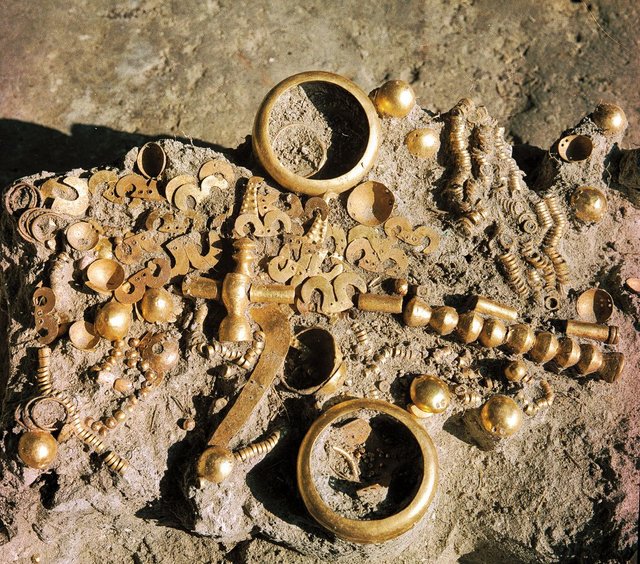
Even More Valuable are Diamonds
which upon first observation in their raw state, seem superficially no different or any more impressive than a piece of simple quartz. A special type of hard carbon, produced by Mother Earth in lava tubes of active volcanoes millions of years ago, spat out far and wide to end up in river beds and embedded deep in rock, diamonds are even more rare than gold. When polished and cut, they become highly sought jewels, which, like gold, have an almost immortal quality. Perhaps this mystique lent them an air of value which to this day has been upheld. Even though there are many diamonds available, like all forms of currency, diamonds value has been controlled by it's supply.
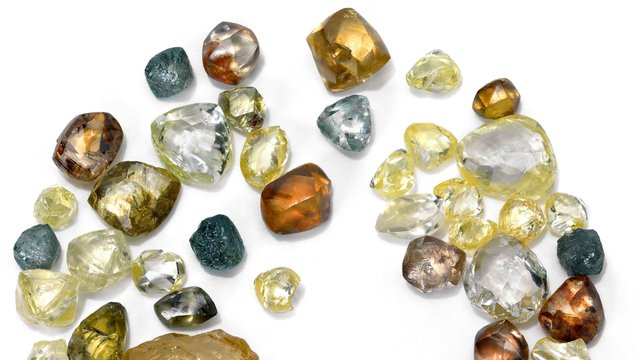
Both Possess Special Properties
which became apparent in the industrial age. Diamond's ultimate hardness and gold's superb (not super) conducting abilities make them both more valuable than just as adornments but the former and the latter, worn in elegant formations, have always offered the wearer a reliable source of portable and instantly redeemable wealth. This has kept gold as a useful form of wealth not just for individuals but for Nation States. Central Banks & Governments keep large amounts of gold in underground fortresses, as a reliable backup to cash and this is perhaps clue to it's usefulness as a store of value. Everyone agrees it's worth so it can be used instead of paper money in exchange for anything else.
In the Days Before Modern Paper Banknotes Proliferated
Gold was perhaps the most convenient form of money, most commonly minted as coins of a standard value. Notes were invented as an I owe you. Diamonds (other precious stones) and gold along with silver, often in the form of standardised coins could always be swapped for required items, universally accepted by most purveyors of quality goods or could easily be used to secure passage by land or sea. Bags of Gold coins are often mentioned in stories of old where Kings and rich Noblemen use them (often in vaguely specified amounts) as a mechanism to purchase loyalty, secrets, fund adventures and explorations, pay rewards for heroic deeds, or indeed secretly exchanged for the execution of dastardly ones !
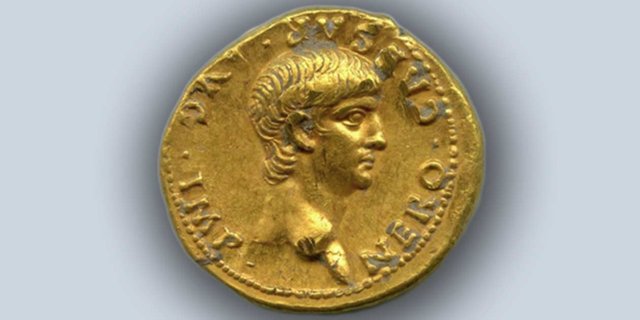
Other more practical value stores traditionally used as a form of currency
include livestock and property, both essential to the well being of people. Horses, cattle, camels, sheep, pigs, chickens, & reindeer, among many other animal species have been kept and bred by farmers and herders for thousands of years. They can offer life sustaining food, or transport and importantly can be multiplied with careful care. It's said that to ask a Sami herder how many head of reindeer they possess is like asking what the balance of your bank account is, (quite rude) and although their way of life may seem like a relic from the past, herds of beasts still confer status and a steady income to indigenous people all over the world from the Arctic Circle to Sub Saharan Africa and across the Great Plains of Asia.
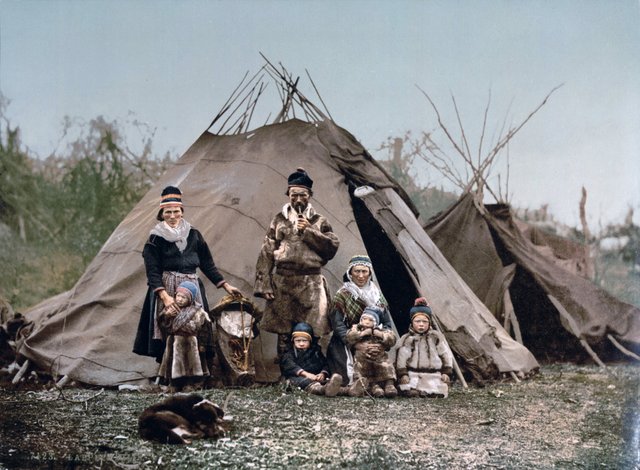
Property Has Always Been an Essential Part of the Human Equation.
From simple huts in the forest to the grandest of castles and palaces, they occupy the one thing which humanity has battled over the most; Land and the territorial ownership of land represents the basis of life itself. Without land you cannot grow crops, raise animals or build a home for yourself and more importantly your community.
However, All Land is not Equal.
A special type of land has been in the highest demand since the very start of our collective story and it is the richly soiled and fertile land which can be used to grow food, graze pasture and reap many rich rewards from. Often deep valley tracts of land, oriented East to West with the sun, sheltered and protected from the elements and invaders have been the most prized. Access to water is also vital whether from rivers, lakes or steady rainfall.
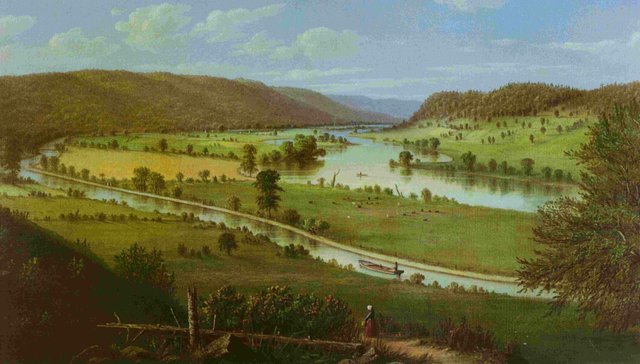
Civilisation They say, is Built on Bread
and since the earliest societies, the ability to co-ordinate and share the labour of reaping and storing grain has been central to human progress, no less, Empire building. The Ancient Egyptians worshipped cats for their singular ability to save the stored crops cereal from rats and mice, which could obliterate a nation's fortunes in days and weeks. Bread is still central to civilisations' goals and the staple crops of wheat, rice, corn, bananas, soya along with the thousands of other rich foods which we demand and eat all year round from exotic locations form the fuel for the collective engine of modern life. The mass cultivation of grain allowed specialism in skills and a move away from multi-skilled agrarian life towards artisanal production of goods & (services) by skilled accountants, priests, officials and traders.
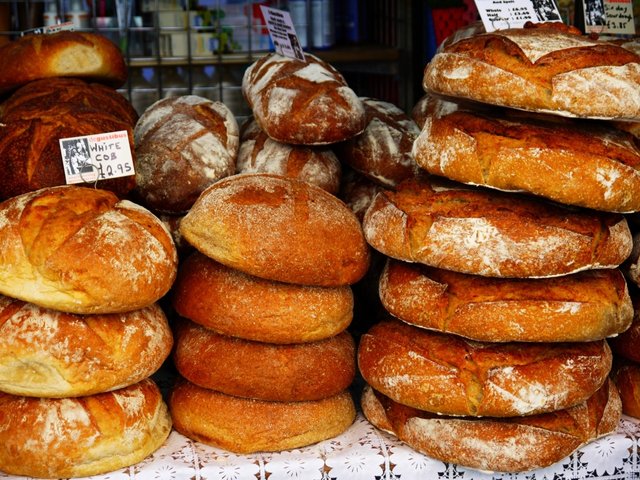
Along with the Staple foods of Civilisation
come the other necessities and luxuries which we require and desire. Cotton. Flax and Hemp for clothing and packaging. Stimulants like Coffee, Tea & Tobacco, Cocoa, Grapes and sugar rich grains for the production of alcohol,. All grown in rich soils on highly valuable and often species specific, agricultural land. Although the stimulants we actively seek out for their physical effects and lubrication of modern life are poisonous chemical compounds, originally intended by nature to deter predators from consuming too much of the plant, we value them highly. Grapes and Coffee are both tricky crops and require, just the right type of soil and sunshine levels. It's no coincidence that New Latitude Wines are a relatively new phenomenon, related to the Earth's climate change. Previously restricted to latitudes 30-50, wine grapes can now be even grown in the UK, where the climate is similar to the Champagne region of 150 years ago !
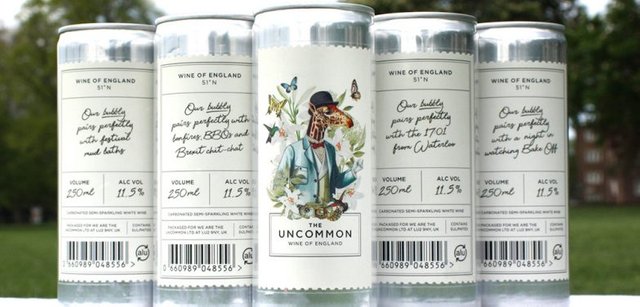
We've come a long way in 10,000 years
and agricultural land is still one of the great assets of our planet. It has performed consistently well as a store of value over time and wealthy landowners often lease out many hectares to a number of farmers, becoming powerful rentiers in the process. Throughout history, powerful Aristocrats often took a tythe from the land they owned. In effect a 10% tax on all output produced on their land in addition to rent. This was often given in the form of raw produce or processed items which could be consumed, bartered or sold on for cash (more likely in the form of gold.) It made medieval landlords rich and very powerful. In the modern age landowners are still powerful but our food production is often managed by a mix of small independent producers, collectives and of course by large transnational corporations who can leverage high volumes and steady supplies to keep prices competitive.
So How Does This Relate to Cryptocurrency ?
Everyone is looking for reliable stores of value in a rapidly changing world and to some extent, bitcoin seemed to offer for the first time, a digital abstract version of a *Gold Standard. A store of value which was agreed by a majority. But as an unregulated and very new phenomena, it's value has been hard to define and it's merits have been (understandably) questioned by the existing purveyors of currency, the banks. It's only natural that a challenger to the status quo be cautiously observed, even when everyone on Wall Street is secretly investigating how crypto can be leveraged for profit in existing markets. Bitcoin is, remember backed only by mining pools and there is no underlying asset to exchange. It and other crypto currencies like Ethereum and a host of newer crypto assets have been aggressively traded by everyone from commodities traders in their lunchtimes to currency experts, hobbyist investors, financial speculators and college kids. In an unregulated environment it's incredibly volatile and regular investors (and those looking for safe investments, like pension and hedge fund managers) aren't fully convinced by double digit daily drops, or gains in a cryptocurrency's value.
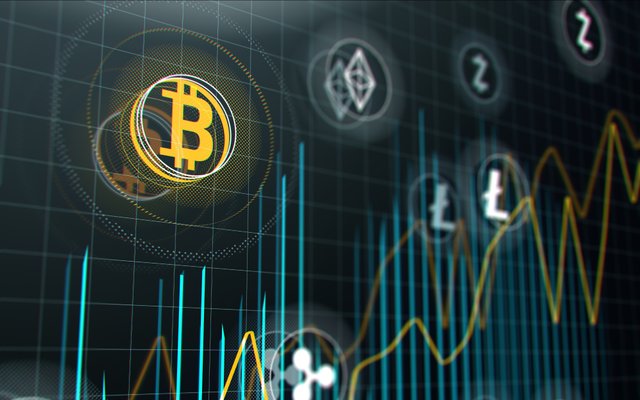
Blockchain Entrepreneurs have Attempted to Overcome this Volatility
(and trust) obstacle by pegging their coins to physical assets including pink diamonds & the US dollar. Blockchain is very useful for the open and reliable transfer of ownership of assets and this is where we return to the topic of our article; Land. Innovative & clear thinking around these challenges have led to the formation of Fieldcoin. A cryptocurrency backed by physical assets in the form of a portfolio of Agricultural land. It has coincided with the maturing of Cryptocurrency at a time when international transfer of land assets is becoming much more simplified by regulatory improvements. Agricultural land as a store of value performs well over time and can be owned, rented out, sold and swapped in packets or parcels. It's a viable match for the maturation of crypto and one which appears deceptively simple.
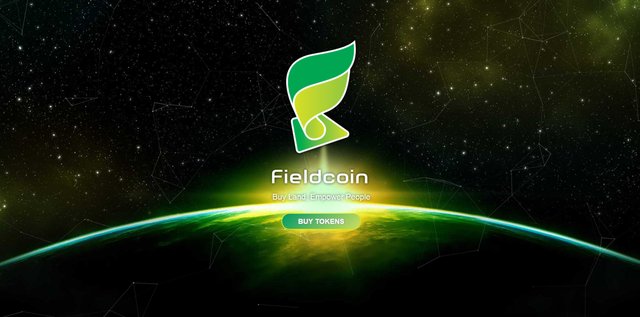
Fieldcoin is Quite a Complex Concept
but at it's core is an idea which appeals to investors. How does a cryptocurrency guard against devaluation ? A portfolio of land is bought with initial investments. The tokens represent parcels of this land. The land is audited regularly and the tokens worth is reflected by a recalculation of the land's value. This is performed independently and the land owned by the tokens maintains it's financial value in the face of steep market drops. It's an inventive way to circumnavigate the volatility of crypto. In the field of institutional investment market instruments, crypto's often daily downward performances would be classed as a crashes and so represents a major challenge for the sector in terms of mass adoption.
Fieldcoin's Protection Mechanism is Somewhat Unique
and marks it out as a potential survivor and successor / leader of Generation 3 crypto tokens. It's method of audit, re-evaluation of token value will no doubt be emulated by other's seeking to stay in the market. Those which have a physical asset to actually back up the token's perceived value store.
Provenance is Increasingly Important in the World of Produce
Blockchain can help root out rotten supply chains and Fieldcoin aims to tackle food integrity with food to fork tracking, an initiative which is also revolutionising logistics and shipping. It's long overdue and should provide consumers and small producers with many long term benefits, not least the vital relationship building of trust, transparency and accountability. It remains to be seen whether large food producers can harness this technology to do the same for transnational crops which make up the bulk of our consumed food.
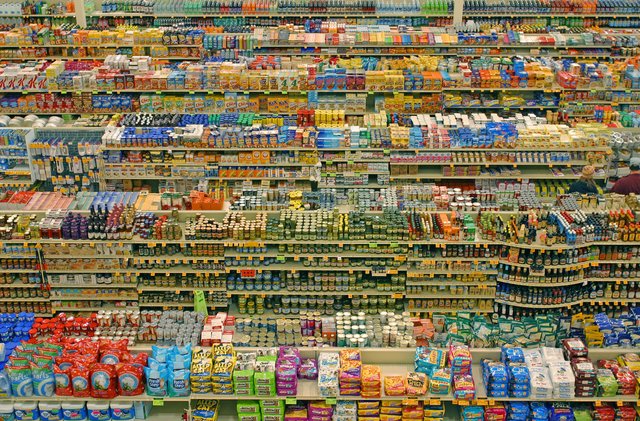
img src Mass Production of Food - wiki
Management of Assets
Most investors don't have the time or expertise to manage their asset portfolio. Fieldcoin have also tackled this with Blockchain. Tokens bought, representing land can be further managed for lease to client's by Fieldcoin's land management team. It's a neat concept and one which also has an added benefit. Blockchain makes it efficient which means fees are lower. Substantially lower than previously. So it's disruptive in several ways and there are added opportunities which Fieldcoin have made part of their business model. One which is genuinely exciting and truly useful. Small investors have been kept out of land and property for centuries by the relatively high bar to entry. These are very interesting areas where the disruptive qualities of blockchain thinking could theoretically revolutionise economics and help re-distribute wealth on a large scale. Fieldcoin's mission includes improving access to irrigation, roads, etc and helping bring liquidity to the market for smaller farmers, education about land management and help modernise agribusiness infrastructure. The Fieldcoin foundation is an important feature of the project and is rapidly emerging to be come a standard (and I think very welcome) feature of ambitious, third generation blockchain organisations.
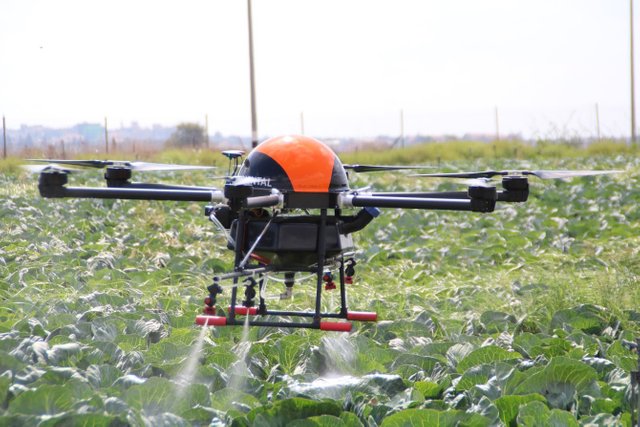
Agribusiness Innovation is one of the keys to tackling climate change.
In the age of climate change and a rapidly expanding population, the strain on land to produce ever more in challenging environments is key and probably more so than we currently realise, to our continued survival. Central to Fieldcoin's thinking is to leverage the ownership of land through tokenisation as a platform for crowdfunding industry specific innovative products and services. My own childhood dreams of being a farmer never got past growing some of my own food in my garden. I have grown many types of food but never enough to feed myself. I learned all about the cycle of life and where our food comes from and enjoyed some tasty meals.
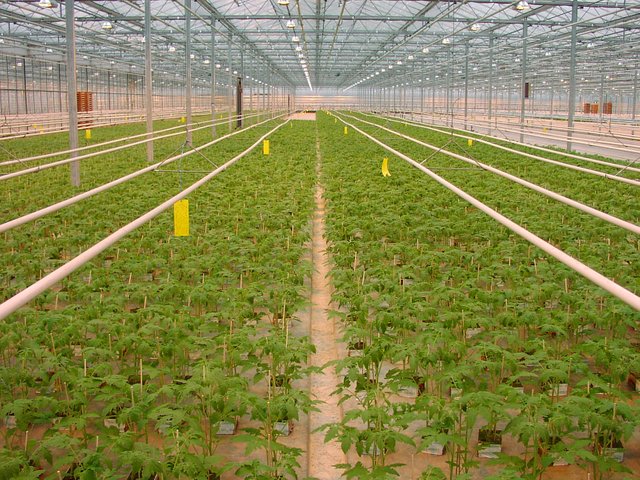
Sure, I can grow enough tomatoes to crop a bowl per day all summer and perhaps a small sack of potatoes, but my love of technology led me to start thinking about controlled environment produce. Already, much of our food is grown in vast quantities under polythene which adds warmth, keeps water usage down, keeps out pests and allows all season growing with natural bio-controls in place of heavy pesticides. Predator specific Wasps and voracious Ladybirds can be kept in controlled environments to keep down the pest count. In recent years the increased addition of Carbon dioxide under controlled allows for increased yield in shorter growing cycles. Drone technology can help farmers check crops and allow for more efficient use of fertilisers and pesticides, while robotic planters, reapers and weed killing machines can work, efficiently around the clock in all conditions. I recently saw a rice trans-planting machine which robotically and without error, did the work of many people.
I Would like to Grow Indoor Veg for the City,
take out the carbon miles of transportation and send macrobiotic fresh food straight to the heart of the metropolis from a few miles away in electric vehicles. I'll use filtered LED lights with energy sourced from solar in temperature and humidity controlled environments where pests will not be able to enter the chain. I will grow around the clock and yield fast growing, nutritionally rich salads in multi layer, vertical arrangements. I will not use soil but a hyper efficient form of hydroponics where exact amounts of organic nutrients will be fed through a closed loop filtered system and monitored with high tech hardware and software analysis.
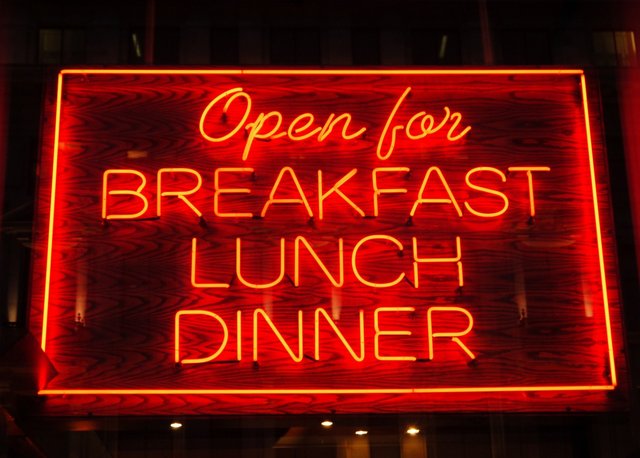
My Own Personal Dream
and one which I hope will eventually lead to urban production of high potency bio-pharmaceutical products which are increasing popular as natural alternatives to chemically synthesised drugs. Where could I pitch this to investors ? It's a complicated idea with many (off the shelf) components and I'm certainly not alone in my ambitions.
I can imagine that this is not really the engineering heavy, drone based, automated field tech innovation which the founders were maybe expecting to be pitched on the platform but it's a possibility that if I pitch it (to like minded individuals who see the future of food and pharmaceutical production as a challenge to be solved in many different ways), that I might just get some interest and be able to launch my own space station style, dream farm.
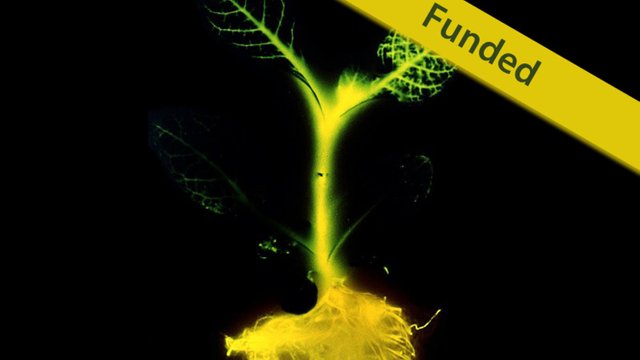
It won't necessarily rely on hectares of prime agricultural land to be a success, but that's kind of the point and ironically where a crowdfunding platform can breathe life into many great ideas, from the 3D doodler to glow in the dark plants (kickstarter). Maybe one day astronauts will use these ideas to solve living in space or on other planets and moons. As the fictional Mark Wattney from the novel & feature film The Martian says, I'm going to have to science the sh*t out of this ;). Although to be fair to the crop of Potatoes he fictionally grew to survive using his own poo as fertiliser, I really wonder where he found the essential fungi, which symbiotically provide the mechanism of nutrient uptake for the plants roots (in the sterile martian soil...) unless the author knows something we don't !
For More Information
Fieldcoin is currently in ICO phase. To learn more about the Fieldcoin project visit:
this article is written as an endorsement of fieldcoin as a project which the writer has an active interest in. I advise all potential investors to conduct their own research and due diligence and not rely solely on the advice of others. Remember investments can go up as well as down and the Blockchain Revolution will change the world.
I think store of value is a complex idea, because first of all, what is "value"? How do we measure value?
Is fiat price, the "value" of a thing? I say no. Price is what you pay, value is what you get.
In that sense volatility from the perspective of fiat price becomes interesting but irrelevant.
So when we talk about crypto not being a store of value, I think we are really making the mistake of conflating price with value.
Btc price is fiat is hugely volatile, but its value is in its utility, if it has utility. I believe it does but that is a seperate conversation. So price volatility can exist in an asset and yet that asset be considered a "store of value" in my opinion.
Good read. Thanks.
Posted using Partiko Android
Thanks for the comment @infidel1258. I agree, store of value is a complex idea, one that is certainly very fluid and relates highly to notions of perceived supply and demand. It's an abstract concept which crypto has begun to challenge. Disruptive technology is interesting in it's ability to not only improve on previous iterations but also it's ability to disrupt thinking & behaviours... which is why I became interested in crypto in the first place. The BlockChain Revolution may still be in it's early days but I think that within a decade, this relatively new technology will have literally changed the very fabric of society due to a few simple and immutable rules contained therein ;) kind of hoping it might...
Im with you, but as it happens I also stack silver, and own a home, and buy and store food and water, because I recognize as you point out, that wealth, and store of value can come in many shapes.
I think historically speaking, silver and gold have the best case for being "money", meaning, a unit of account, that is also a store of value, and a medium of exchange, while simealtaneously being:
Thanks for the post and the reply.
cheers ace, yes. value is what we agree upon and often, by no coincidence, often what we need. It's no surprise that second hand cars, clothes and gadgets are often a fraction of their original cost to buy but antique furniture, truffles and precious metals stay expensive. what's really valuable though are ideas, compassion, truth, community and knowledge. I wish someone could come up with a blockchain which recognises those things and monetises them.. oh yeah, steemit ! ha :)
Congratulations @outerground! You have completed the following achievement on the Steem blockchain and have been rewarded with new badge(s) :
Click here to view your Board
If you no longer want to receive notifications, reply to this comment with the word
STOPQuite interesting ideas an project you bring here! I didn't knew about fieldcoin. I'll be looking for more information on this matter. Thank you!
Posted using Partiko Android
thanks @martusamak it is an interesting project and one with many different aspects to it. here's a link tor their website, there's plenty of information about the various aspect fieldcoin website